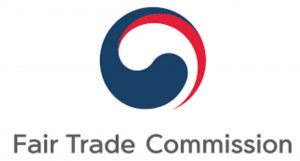Latest news about Bitcoin and all cryptocurrencies. Your daily crypto news habit.

The need for cryptocurrency self-regulation in South Korea is rising as banks still refuse to issue new virtual accounts for most crypto exchanges. The Korean Blockchain Association is preparing self-regulatory standards. Thirty-three exchanges were asked to undergo a review; twenty-three agreed but ten refused, according to local media.
Also read: Japan’s DMM Bitcoin Exchange Opens for Business With 7 Cryptocurrencies
23 Exchanges to Self-Regulate
 The Korean Blockchain Association is preparing a self-regulatory review of cryptocurrency exchanges operating in the country as well as launching standards for self-regulation. Jeon Jae-jin, chairman of the association’s self-regulation committee, was quoted by Seoul Finance explaining, “We will focus on establishing the safety and transparency of the exchanges.”
The Korean Blockchain Association is preparing a self-regulatory review of cryptocurrency exchanges operating in the country as well as launching standards for self-regulation. Jeon Jae-jin, chairman of the association’s self-regulation committee, was quoted by Seoul Finance explaining, “We will focus on establishing the safety and transparency of the exchanges.”
“The association predicted [that the] self-regulatory review will be smooth,” the news outlet noted, adding that thirty-three member exchanges were asked by the association to undergo a self-regulatory review. Twenty-three of them agreed; the remaining ten refused and were cast out of the association. Among them was Coinnest, whose CEO was recently arrested.
According to the publication, the member exchanges at the time of this writing are Glosfer, Nexcoin, Neoframe, Upbit, Bithumb, Gopax, Coinlink, Scoin, Okcoin Korea, Whalex, Zeniex, Kairex, Kcx Exchange, Komid, Korbit, Coinone, Coinzest, Coinplug, Crypto Company, Dexko, Korea Encryption, Money Exchange, and Huobi Korea.
Fair Trade Commission’s Suggestions
 The association revealed that it is working with a law office to develop the standards for crypto exchanges, Zdnet Korea reported, adding that they are expected to be “released in a few weeks.”
The association revealed that it is working with a law office to develop the standards for crypto exchanges, Zdnet Korea reported, adding that they are expected to be “released in a few weeks.”
The Korean Fair Trade Commission (KFTC), which recently ordered twelve crypto exchanges to revise their consumer contracts, has also provided recommendations for the standards. The agency says they should “contain a wide range of disclaimers, restrictions on unauthorized deposits and withdrawals, restrictions on the arbitrary use of services, and corrective clauses on identity and password management,” the publication detailed, adding that:
The association plans to incorporate the [K]FTC’s recommendations in the development of the standard terms and conditions.
The exchanges that agree to a review “will be checked for compliance with the self-regulation set by the association, focusing on security, coin listing procedures, capital and other investor protection.”
New Account Issuance Needed
Since the implementation of the real-name system at the end of January by the South Korean government, small and medium-sized crypto exchanges were unable to open new virtual accounts. Banks have opted to only open them for the country’s biggest crypto exchanges: Upbit, Bithumb, Coinone, and Korbit.
“The exchanges expect that this self-regulatory review will be an opportunity to demonstrate the stability of the exchanges,” Seoul Finance wrote and quoted an official of the association:
Since our affiliates actively cooperate in creating a healthy market, we expect [this action] to lead to new account issuance and market activation.
The results of this self-regulatory review are expected to be announced at the end of this month. With self-regulatory compliance, the association and affiliated exchanges plan to request banks to issue new virtual accounts for small and medium-sized exchanges again, the publication conveyed.
What do you think of 23 crypto exchanges opting-in to self-regulation while 10 refused? Let us know in the comments section below.
Images courtesy of Shutterstock and the KFTC.
Need to calculate your bitcoin holdings? Check our tools section.
The post 23 Cryptocurrency Exchanges in South Korea to Self-Regulate, 10 Opt-Out appeared first on Bitcoin News.
Disclaimer
The views and opinions expressed in this article are solely those of the authors and do not reflect the views of Bitcoin Insider. Every investment and trading move involves risk - this is especially true for cryptocurrencies given their volatility. We strongly advise our readers to conduct their own research when making a decision.